You can forget iPad mini
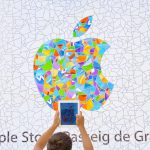
I did something quite shocking yesterday -- talk to my boss on the phone. Yes, we both occasionally get sentimental about such old-fashion communications. Among the topics: iPad mini, which is perennial rumor topic recently. Neither of us could quite fathom why or for what price a smaller Apple tablet makes sense. A new survey makes iPad mini all the more perplexing, and all the less a good idea.
According to an August TechBargains.com survey of 1,332 shoppers, 50 percent wouldn't buy iPad mini, while 45 percent would purchase iPhone 5. Meaningful context: The shopping comparison site conducted the survey before either product was announced, equally gauging sentiment based on rumors. Only 18 percent of respondents would buy the tablet. But that low number only hints at the deep level of disinterest.
Get 21GB of space on MegaCloud for free [BetaNews Exclusive Offer]
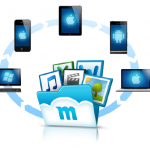
MegaCloud is a new, free-to-use cloud storage and backup service (compatible with Windows, Mac, Linux, and Mobile) that lets you store, sync and share all your documents, photos, music, videos and more across all of your devices. Unlike some similar services, having a free account doesn’t mean being restricted in any way -- all free users get 16GB of space, divided into 8GB for storage and 8GB for backups.
Well, that’s how much ordinary, everyday free users get. But obviously, as a BetaNews reader you deserve a little extra, so MegaCloud has kindly upped the free storage on offer to 21GB (13GB for storage, plus 8GB for backups) exclusively for us, and all you need to do is click on the link below and sign up for a free account. And if that’s still not enough free space for you, you can get yet more gratis storage simply by installing a mobile app or referring friends to the service.
Samsung brand perception rises, as Apple falls
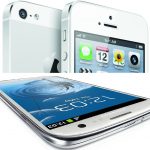
They say the apple doesn't fall far from the tree. But it does.
Samsung's brand has recovered from a disastrous low, demonstrating the benefits of aggressive, compelling marketing and the pitfalls of a competitor's public product problems. Make no mistake: Samsung's snarky attack ads, which make fun of iPhone idolators, are as effective today as they were when first aired in November 2011. The perception change, which puts Apple's brand lower, also shows the damage done by iOS 6 Maps and dissatisfaction with the company's response.
Skype offers free WiFi across the UK

If you live in the United Kingdom or the Republic of Ireland, you’ll soon be able to access free WiFi through cafés, restaurants, hotels and shops, courtesy of Skype and wireless provider Wicoms.
The new WiFi network initiative, called Free Skype WiFi, will be available to all Skype users and accessed using the free Skype WiFi app. This already allows users to connect to over a million hotspots around the world, but for a fee. Users who don’t currently have a Skype account will be able to sign up on the spot by entering their email address.
Let the porting begin: Open webOS 1.0 launches

It's been ten months since HP open sourced webOS, the attractive Web-based operating system that proved to be the last hurrah for smartphone pioneer Palm. Today, the Open webOS team announced the availability of Open webOS 1.0, the first official build of the open source platform for both desktop and embedded environments.
This release includes support for the Enyo2 core application framework, the Nyx portability layer, support for the latest Qt framework and WebKit engine. It also includes the OpenEmbedded build system for embedded Linux environments, and also a desktop build. It also has the signature webOS "card-based" user experience and core apps (Web browser, email client, calendar and contacts, clocks and memos).
Sorry, Tim Cook, apology not accepted

Apple's CEO is "extremely sorry" about the "frustration" the company's homegrown maps app "has caused our customers". Sorry isn't good enough because it's directed at the wrong place. Apple replaced Google Maps in the newest version of iOS on September 19, and even Cook admits "we fell short on this commitment" to "make world-class products that deliver the best experience possible to our customers". Simply stated: Apple Maps app sucks, but he apologizes about the wrong thing.
Cook's letter of apology should go further and get to the root problem: Why Apple ditched Google Maps in the first place. Before his death, Steve Jobs told his biographer that Google's Android essentially is a stolen product, a copycat: "I'm willing to go thermonuclear war on this". Apple bombs Android competitors with patent lawsuits, risking fallout in the form of legal precedents that could hurt all tech companies. Apple's dumping Google Maps, and also YouTube, from iOS are warfare tactics -- and bigger than copying concerns when looking at local search as future ad revenue opportunity. Apple customers are collateral damage from nuclear fallout that is the new mapping app.
Chromebook changed my life

Four months ago, I put aside (and later sold) MacBook Air for the Samsung Series 5 550 second-generation Chromebook and never looked back. They say three times is a charm, and that proves true with my third foray using a laptop running Chrome OS. The first two proved life-changing, as I adopted a partial cloud computing lifestyle. Now I live a vigorous, charmed cloud life, which includes Android embrace.
Chromebook isn't easy, because it demands a thinking reset. I had to put aside concepts about everyday computing, fear of losing Internet connection and perceptions about hardware configurations and what's good enough performance value. Something else: When I started this journey, in December 2010, Chrome OS wasn't good enough, because there weren't enough supporting cloud apps. That has changed dramatically, because of Chrome Web Store and how much desktop-like utility Google now brings to cloud services like G+ or YouTube.
PC is no longer personal computer
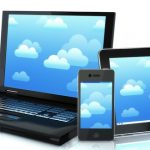
Do you own a Windows laptop, iPad and Android smartphone? Welcome to the post-PC era, which transition IDC describes as "profound". During second quarter, smartphones and tablets commanded 69 percent of smart device shipment share, dwarfing PCs.
"Recent shipment data clearly demonstrates that we have fully entered into the multi-device era, where individuals are buying and using multiple devices per person, most often with different combinations of operating systems", Bob O'Donnell, IDC vice president, says. "The implications of this development on application developers, device makers, Web service providers, businesses and even individuals is profound".
Panasonic knocks down price on second-gen lightweight Toughbook 53
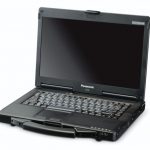
Panasonic on Tuesday debuted the second generation upgrade of its lightweight Toughbook 53 notebook computer, which features a faster processor, a larger storage capacity, and improved battery life.
For almost fifteen years, Panasonic's Toughbook has been one of the most recognized brands in ruggedized mobile PCs, and it has included a number of different enterprise-class form factors. Last year, however, the company took the Toughbook brand into two new directions that mirrored the state of the consumer PC industry at large, and the impact it has been having on enterprise devices: Android-powered mobile tablets and lighter-weight touchscreen notebooks.
Give Apple and iPhone 5 a break
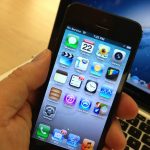
iPhone 5 is not a revolutionary device. Does it really need to be? No. Despite the geek freak-out that iPhone 5 isn't innovative enough, I don't doubt the handset will sell really well. What matters: Is it better enough? From my first impression, playing with one inside Apple Store, yes. More importantly, the device will be better enough for many people moving from feature phones to smartphones but shocked by the huge physical size of other devices.
Apple already has a successful post-PC product and supporting ecosystem of applications, cases, peripherals and other stuff. iPhone 5 isn't the be-all, end-all Apple cloud-connected device but the flagship in a platform continuum. Why else, for example, would the company also offer iPhone 4 (free) and iPhone 4S ($99)? iPhone 5's challenge is to be better enough, and if it's not for some buyers -- say, either the 4 or 4S is good enough -- older models are still available for less. To understand what iPhone 5 is not, you need to understand what Apple is and why the new handset actually is more than upgrade enough.
Windows 8 tablets are the right post-PC response

Microsoft is taking a considerable risk with the Windows 8 ecosystem and major push into the post-PC era. There is no room for error and to get it right all the parts must work in perfect harmony. Windows 8 faces stiff competition and must dismount all preconceptions it's a weak tablet operating system.
Microsoft enters the market fully prepared to take its opponents head-on. Instead of copying adversaries, the company takes the more mature approach of offering a different user experience. Every competitor should fear Windows 8 tablets, and I've got five reasons why.
What do you think of iOS 6?
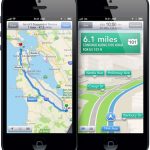
Today, two days before iPhone 5 launches, Apple releases iOS 6. We'd like to know what you think of the software, particularly compared to the previous version. Several features are sure to cause reaction, with Facebook integration and Apple's new maps app, which replaces the one from Google, being high among them.
To be honest, given my Apple boycott and iPhone-toting daughter going off to college, I have no iOS device for testing. I can't review, and my best Apple-using writers are in Europe and likely won't blast out anything until tomorrow. But we need reaction today, particularly if iOS 6 turns out to be the update some of you won't want to apply. Judging from some of the reaction on Twitter, many of you should wait -- lest Apple Maps directs you to the river bank instead of your local financial institution.
Has Microsoft lost the tablet war before it begins?
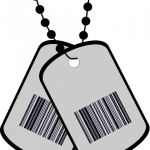
Asus' Windows 8 tablet roadmap leaked a few days ago, revealing the company's intention to launch three tablets powered by Microsoft's soon to be released Windows 8 operating system. Bloggers and journalists have used the roadmap to argue that the pricing is too high to compete effectively against Apple iPads and Android tablets. Taken aside that the pricing may not be final, it seems like they are right, if you only compare price and nothing else.
Asus' entry model, the Vivo Tab RT, for instance, lists with a starting price of $599. That's $100 more than Apple's cheapest new iPad model, and $300 more than Google's Nexus 7 tablet. But can you really make that comparison?
Friendly advice to a fellow post-PC traveller

You do even better! That's what I'd say to fellow BetaNews contributor Mihaita Bamburic if I ran into him in a hallway somewhere. As I watch with amusement, his "existential struggle" with the post-PC question, I have to chuckle a bit at his naïveté. Like most PC veterans, Mihaita tries to squeeze a square peg (tablet) into a round hole (desktop-centric thinking). He'll need to leave those preconceptions behind if he ever hopes to do more than scratch the post-PC surface.
For starters, reset your purchasing criteria. You need to forget about those expensive "clamshell" tablet/dock combos and start off with a simple, cheap Android tab. I picked up a dozen Acer Iconia A200s on eBay for use at the new school my wife and I are building. Prices ranged from $170-200 for refurbished units with 8GB or 16GB of onboard SD storage. At that price point, you can pretty much experiment to your heart's content without worrying about trashing some "transforming" device that costs more than a decent laptop.
HP's next attempt at a smartphone could target the developing world

After acquiring Palm, releasing a scant few smartphones, then terminating the business and open sourcing webOS, Hewlett-Packard CEO Meg Whitman now says the company isn't done with the smartphone business yet. In a television interview this week, Whitman said her company "took a detour into smartphones" and that it has no other option but to release a smartphone because in many developing markets, that is the primary computing device.
This is something we've heard from all kinds of technology companies and international development groups for the last few years, following more than a decade of attempts at bringing better computing capabilities to emerging markets. In many of these places, the notebook computer simply did not exhibit the same impact that mobile communications devices did.
Recent Headlines
BetaNews, your source for breaking tech news, reviews, and in-depth reporting since 1998.
© 1998-2025 BetaNews, Inc. All Rights Reserved. About Us - Privacy Policy - Cookie Policy - Sitemap.